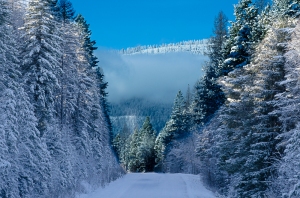“Feliz Navidad!”
Well, around here “It’s Beginning to Look a Lot Like Christmas.” The “O Christmas Tree” is lighted, packages are wrapped in “Pretty Paper,” and I admit there’s been some “Kissing By the Mistletoe.”
At every store, the “Silver Bells” of the Salvation Army Santa is ringing. Strangers greet each other with “Happy Holidays,” while the kiddos sing “Jingle Bells” for the 248th time. It truly is “The Most Wonderful Time of the Year.”
I hope your loved ones will be “Home for the Holidays.” I phoned my daughter to say “Please Come Home for Christmas” so it won’t be a “Blue Christmas” at the Epperson’s house.
I’m wishing for a “White Christmas.” Our hike to the mailbox last evening was more “Ice Skating at Night,” than walking in a “Winter Wonderland.” I know the skiers in my family (of which I am not one) are chanting “Let it Snow, Let it Snow, Let it Snow.” I’d rather stay in with a cup of cocoa and enjoy “Chestnuts Roasting on an Open Fire.”
And although we’re all excited because “Santa Claus is Coming to Town,” we can’t forget the reason for the season. On that “Silent Night,” and “The First Noel,” the “Star of the East” shone over the stable while “The Friendly Beasts” passed the word that “There’s a New Kid in Town” and his name is “Emmanuel.” I’d like to ask the Virgin Mother, “Mary Did You Know” “What Child Is This” sleeping “Away in the Manger” on this “O Holy Night?”
How will you and your friends and family celebrate the season? Going for a “Sleigh Ride” or going “Caroling Caroling?” Or perhaps you have plans to be “Rocking Around the Christmas Tree.” Whatever you do, stay warm and safe. I heard last year that “Grandma Got Run Over By a Reindeer.”
Thanks for stopping by and y’all “Have Yourself a Merry Little Christmas.”
Deborah




